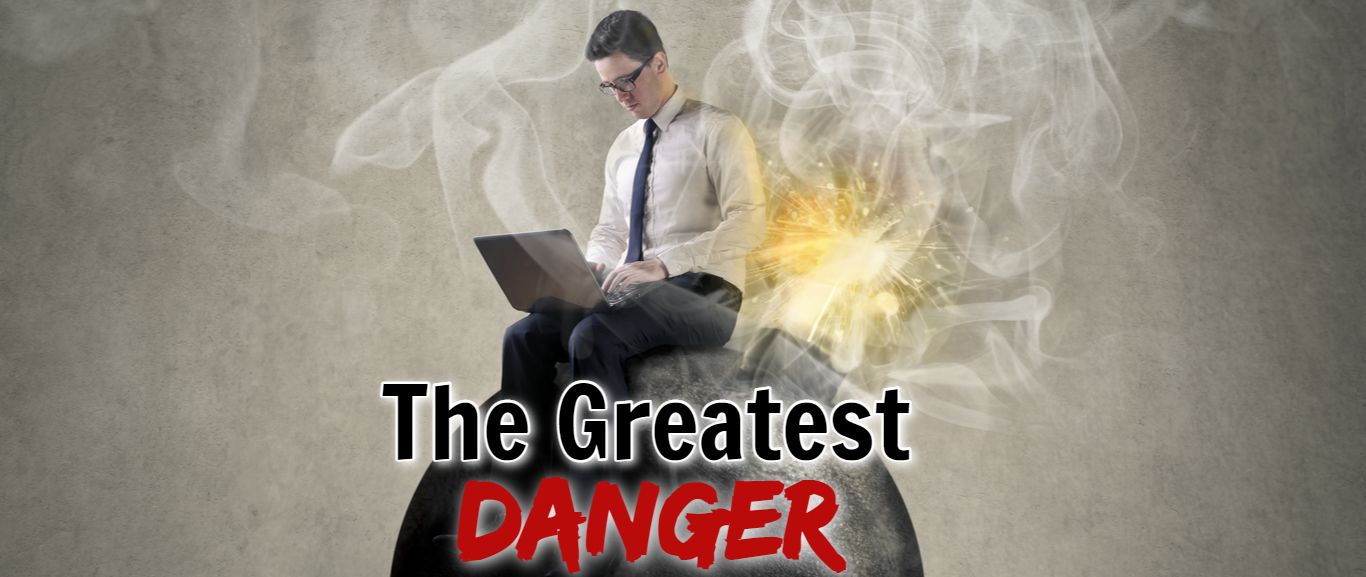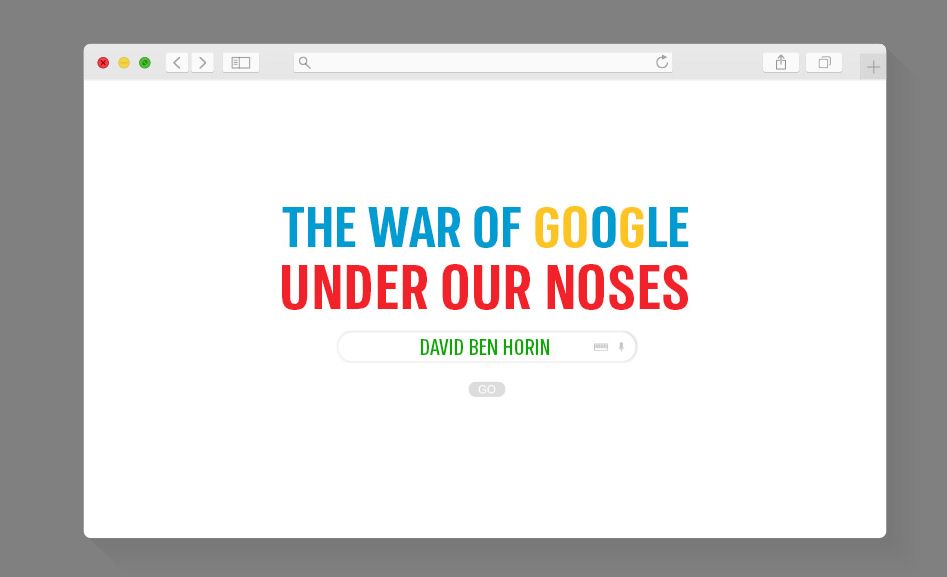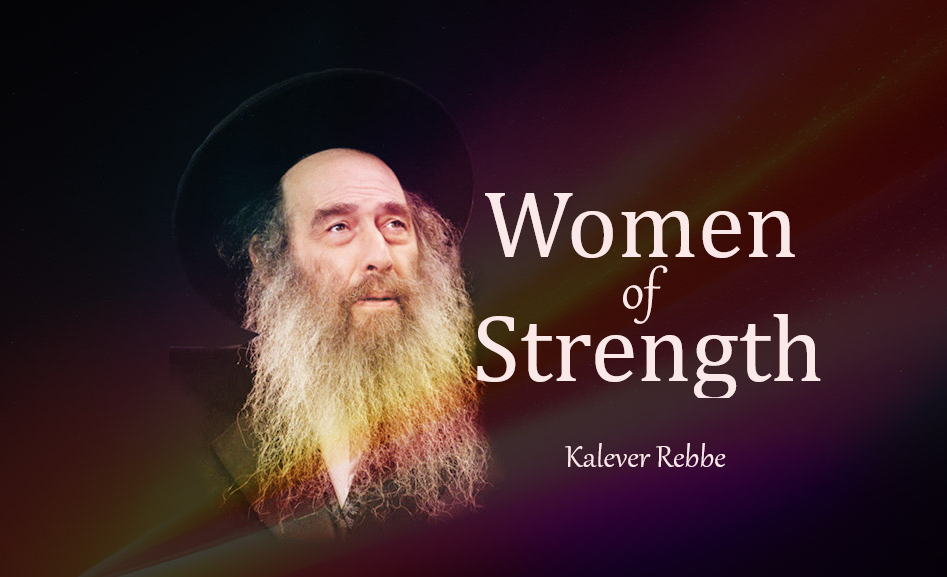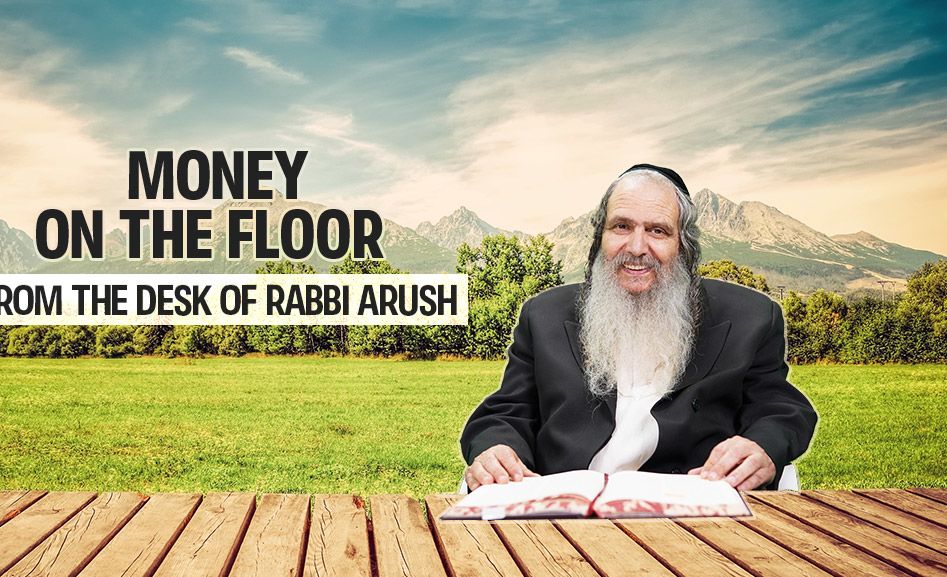
The Greatest Danger, Part 2
Tragedy after tragedy is hitting the world - each of us is truly in great danger. There are simple things you can do to protect you and your loved ones! A must read!

In Part 1 I explained the great danger that lies in lack of unity and love for each other. Now, I will explain the second great danger facing each and every one of us, and how we can protect ourselves!
Scary and More Scary
Rabbi Arush mentioned in his lecture on Shabbat after morning prayers that the biggest plague that resulted in the most deaths when the Jewish people were in the desert was when the men sinned with the non-Jewish women. Bringing sources from the Gemara and Rashi, he explained that the grand total who were killed by Hashem for these sins was 174,000 men!
“That’s a Holocaust! That’s almost one third of the men in the desert! When it comes to sexual immorality and immodesty, G-d has no patience! Even for the sin of idolatry, Hashem killed many less people, and gave people the time to repent. Not so with neuf (all sins relating to sexuality)! It is absolutely dangerous!” Rabbi Arush practically screamed to us.
We aren’t even sensitive to it anymore. The tzaddikim have been telling us for years that the war against sexual immorality, immodesty, Internet, smart phones and the like are all part of the war against Amalek. Amalek represents everything abhorrent to G-d, including and especially extreme sexual immortality.
Why is Amalek paired with sexual sins? The Torah explains that Amalek’s parents were Eliphaz, the son of Esav, and Timna, his concubine. Rashi explains that Eliphaz courted the wife of Seir, and without knowing it, fathered Timna. So Timna was a mamzer, a child born of an adulteress wife to a man not her husband, who then unknowingly married her father! So Amalek was the son of a mamzer, and the result of incest between father and daughter! This formed his essence at the extreme end of immodesty and immorality of all forms. As we saw with the Nazis, Hashem should erase their name and memory, that not only is Amalek virulently anti-Semitic, but they pose a real and present danger to the entire world.
So in our days, as a direct result of these weapons of Amalek, immodesty and immorality have reached levels never before seen on earth. But the really scary part is that we embrace it as “fashion”!
How are we not repulsed by men in skin-tight Lycra pants without socks? If it’s sexy, it’s immodest, no matter how much is covers. And that – that isn’t even sexy, it’s just plain old disgusting! What about black skirts with bright gold zippers right down the front? I mean, can we make it any more obvious that a man who looks at a woman wearing such clothing is imagining that zipper taking the skirt right off?
Every year the skirts get shorter in the stores and the colors get more absurd. These are just a few simple examples of clothing that I very sadly see walking the of my religious neighborhood in Jerusalem. I shiver to think of what walks the streets in the rest of the world… and the really scary part is that no one is even sensitive to it anymore, to even call it for what it is – absolutely gross immodesty that isn’t even “pretty” anymore.
The cherry on top of this downright frightening reality is the real-hair wigs being paraded around almost every Jewish community on the planet. It’s hard to talk about, because no one wants to hear the truth. But I have heard a number of messages from different tzaddikim that we are flat out of time – and the truth simply must be told, or risk the severe punishments G-d forbid. All of the poskim have ruled that real-hair wigs are forbidden on multiple grounds, including greats like the Chasam Sofer and the Chofetz Chaim. Rabbi Chaim Kanievsky, zt”l, the Prince of Torah and Gadol Hador, ruled that they are additionally forbidden because of the real possibility of connection to idolatry, and the certification cannot be relied upon (isn’t it sad that we hang on his every word, except when he says something we don’t want to hear). Rabbi Ovadia Yosef zt”l listed every major posek as against them, Ashkenaz and Sephardic, and then said that anyone who does permit them is a “rasha, machti harabim – a wicked person who leads others to stray.”
I have excellent materials in Hebrew and English for anyone who wants to know more about the truth, including English quotes from the greatest Rabbis that will make your hair stand on end, miracle stories in Hebrew of women who ditched their wigs and had incredible miracles happen, and a translation of an incredible class on modesty by Rabbi Arush that highlights both the terrible consequences and awesome rewards of this critical mitzvah, on which rests 90%+ of the judgment of a woman in the Next World.
My final comment – never forget that while the punishment for sins of sexual immorality and immodesty is severe to the highest degree, the reward for a mitzvah is always 500 times greater. Since I switched my clothes to modest long and wide clothes, I have never felt more honorable or more royal – like a true “daughter of the King.” I love my clothes like never before, and there isn’t any amount of money that you could pay me to go back to my wig and tight clothing.
And the King has rewarded me richly, with many miracles and even more, a profound sense of happiness and satisfaction with my clothes and confidence in myself that I never before enjoyed. After all – for every single tefach (about 4 cm square) of my clothes, multiplied by every single second – I am earning the most important mitzvah of them all.
”In the merit of the righteous women, the Redemption will come.”
It isn’t easy standing against a tsunami of immodesty, but the reward is commensurate with the difficulty!
Read more about the critical role of modesty in bringing the Geula (Redemption) mercifully in Is Mashiach Still Coming This Year?
***
Rachel Avrahami grew up in Los Angeles, CA, USA in a far-off valley where she was one of only a handful of Jews in a public high school of thousands. She found Hashem in the urban jungle of university. Rachel was privileged to read one of the first copies of The Garden of Emuna in English, and the rest, as they say, is history. She made Aliyah and immediately began working at Breslev Israel.
Rachel is now the Editor of Breslev Israel’s English website. She welcomes questions, comments, articles, and personal stories to her email: rachel.avrahami@breslev.co.il.







9/26/2024
Thank you so much for sharing your inspiring story. I was looking for machti harabim.